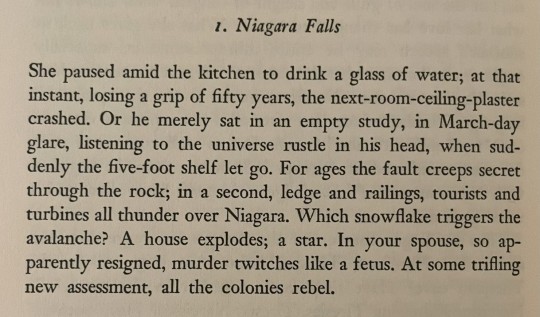#john barth
Text
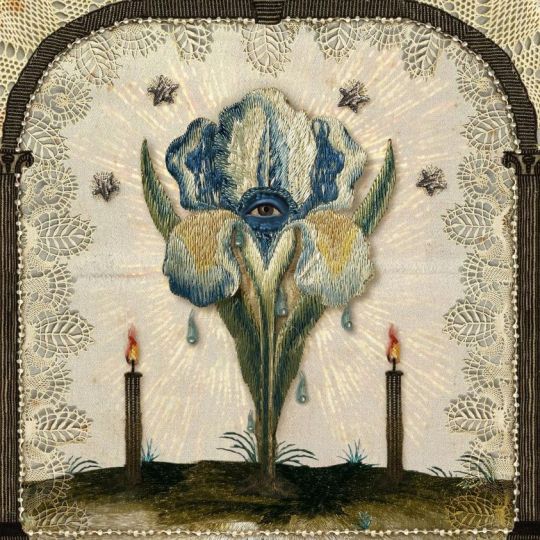
“The Blue Iris”, from Andrea Zanatelli’s embroidery series :: [Guillaume Gris]
* * * *
“Too late she saw: what she’d favored him with in jest he had received with adoration.”
― John Barth, Lost in the Funhouse
15 notes
·
View notes
Text
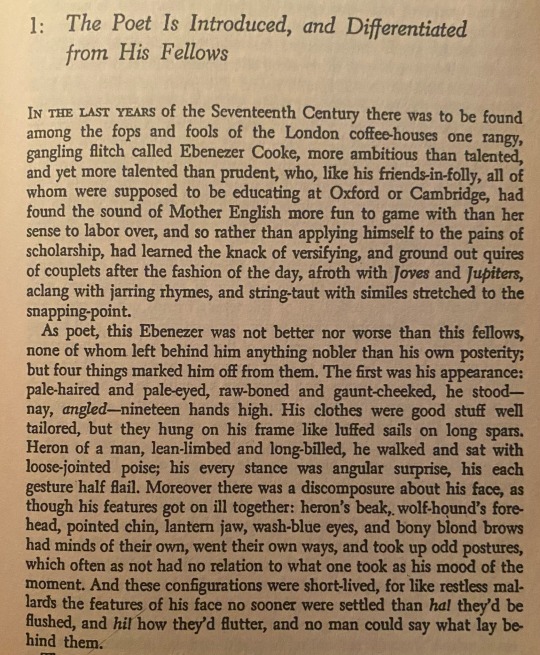
This is still one of my favorite opening pages to an English language novel
John Barth, The Sot-Weed Factor
13 notes
·
View notes
Text
"Yet though it possessed the power not only to EAT all studentdom but to choose to do so, there were respects in which the callowest new freshman was still its better: mighty WESCAC was not able to enjoy, for example, as I enjoyed frisking through the furze, nor could it contemplate or dream. It could excogitate, generalize, and infer, after its fashion; it could compose an arithmetical music and a sort of accidental literature (not often interesting); it could assess half a hundred variables and make the most sophisticated prognostications. But it could not act on hunch or brilliant impulse; it had no intuitions or exaltations; it could request, but not yearn; indicate, but not insinuate or exhort; command, but not care. It had no sense of style or grasp of the ineffable: its correlations were exact, but its metaphors wretched; it could play chess, but not poker. The fantastically complex algebra of Max's Cyclology it could manage in minutes, but it never made a joke in its life."
-John Barth's critique of AI
10 notes
·
View notes
Text
The first obligation of the writer is to be interesting. To be interesting; not to change the world.
—John Barth
53 notes
·
View notes
Text

The American novelist John Barth, who has died aged 93, was a noted evangelist for experimental fiction, beguiling his readers with complex stories within stories.
He claimed as his patron saint Scheherazade in the Arabian Nights, the vizier’s daughter whose tales, spun out for 1,001 nights, entranced King Shahryar: “The whole frame of these thousand nights and a night,” Barth said, “speaks to my heart, directly and intimately – and in many ways at once personal and technical.”
He came to notice with his third novel, The Sot-Weed Factor (1960), a riotous mock-epic pastiche that drew upon a satire of American manners of the same title published in 1708 by one Ebenezer Cooke.
Reviewers compared the book to Henry Fielding’s Tom Jones, and enjoyed Barth’s rollicking use of coincidence, parody, farce, sentimentality and melodrama. It was much-hyped – “One of the greatest works of fiction of our time,” said the writer and artist Richard Kostelanetz – but Gore Vidal found Barth’s humour to be laboured: “I could not so much as summon up a smile at the lazy jokes and the horrendous pastiche of what Barth takes to be 18th-century English.” Other critics complained of its excessive length, narrow emotional range and an underlying facetiousness in Barth’s tone.
His next novel, Giles Goat-Boy (1966), brought Barth critical and commercial success. It was a mythology drenched campus novel, complete with cold war allegories and self-reflexive narratives, 766 pages long. Barth’s penchant for addressing political, religious and philosophical issues gave his novel a flavour of seriousness that was widely praised. Vidal, however, called it “a book to be taught rather than read”.
The following year, Barth published The Literature of Exhaustion, a manifesto for literary postmodernism, in the Atlantic magazine. The traditional forms of representation were used up, he argued. There were too many contemporary writers who went about their business as though James Joyce, Franz Kafka, Jorge Luis Borges, Samuel Beckett and Vladimir Nabokov had never written. Barth’s impatience with most fiction and his eloquent enthusiasm for the experimental caught a moment in contemporary culture. He became the poster boy for postmodernism.
One of the three children of Georgia (nee Simmons) and John Barth, who ran a sweet shop, he was born in Cambridge, a small crab and oyster town in Maryland, and grew up amid the flat, low-lying tidal marshlands on the eastern shore of the Chesapeake Bay.
His twin sister was whimsically named Jill, and Barth’s family knew him as Jack, a source of teasing during their schooldays.
After graduating from high school, Barth enrolled in a summer programme at the Juilliard School of Music in New York. An enthusiastic jazz drummer, he hoped for a career as an arranger, but at the Juilliard he encountered some seriously talented performers and his ambitions shrank.
Instead, he enrolled at Johns Hopkins University, Baltimore, to study journalism. He remained at Hopkins to complete a master’s degree, and in 1953 landed a job in the English department at Pennsylvania State University, where he remained for 12 years.
Barth’s first published novel, The Floating Opera (1956), was a traditional first-person narrative about boozing, desire and nihilism on the eastern shore of the Chesapeake. The End of the Road (1958), described by the critic Leslie Fiedler as an example of “provincial American existentialism”, was a darker novel about a grad-school dropout, ending with an abortion. Some of the more gruesome details were cut at the insistence of his publishers, but restored when the novel was later reissued.
In 1965 he took a job teaching at the Buffalo campus of the State University of New York, where he remained until 1973. During that time of student unrest, the campus was repeatedly occupied by local police and troopers of the National Guard. Barth was less sympathetic to the protesters than some of his colleagues, but he wholeheartedly threw himself into the trashing of the practitioners of “traditional” fiction such as John Updike and William Styron, whose work he felt was a literary dead end.
Under the growing influence of Borges and 60s counterculture, Barth turned away from fat pastiche-novels to short fictional forms. Lost in the Funhouse (1968) was a melange of short fictions for print, tape and live voice, which he staged on campuses across the nation. In 1973 he returned to Johns Hopkins to take up a chair of creative writing, and stayed until retirement in 1992.
By the 80s, the frisky, postmodern self-consciousness that had made readers sit up in the 60s had lost some of its capacity to shock. It had gone, within a generation, from being a great cause to a routine, a shtick. Barth’s books increasingly needed to be explained to readers, and sales fell away. Complex, self-referential novels such as Chimera, which shared the National Book Award in 1973, the epistolary Letters (1979) and Sabbatical (1982) were seen as working out the implications of The Literature of Exhaustion.
In 1980 he revisited this essay with The Literature of Replenishment, in which he repented his youthful scorn for the 19th-century novel as practised by the “great premodernists” such as Dickens, Twain and Tolstoy. If, as the modernists asserted, linearity, rationality and consciousness are not the whole story, argued Barth, “we may appreciate that the contraries of those things are not the whole story either … A worthy program for postmodernist fiction, I believe, is the synthesis … of these modes of writing.”
Barth’s essays were collected in three volumes as The Friday Book (1984), Further Fridays (1995) and Final Fridays (2012). A further collection of short nonfiction pieces, Postscripts, was published in 2022. Once Upon a Time (1994), with its teasing promise of tall tales, was his most autobiographical novel. Coming Soon!!! (2001), with its references to The Floating Opera, showed that the old postmodernist playfulness was unquenched.
In 1998, Barth won both the Lannan Foundation’s lifetime achievement award and the Pen/Malamud award for excellence in the short story.
He married Anne Strickland in 1950 and they had three children, Christine, John and Daniel. The couple divorced in 1969 and the following year he married Shelly Rosenberg. She and his children survive him.
🔔 John Simmons Barth, writer, born 27 May 1930; died 2 April 2024
Daily inspiration. Discover more photos at Just for Books…?
6 notes
·
View notes
Text
John Barth's brief description of Donald Barthelme's so-called postmodernist dinners
Photograph from “The Postmodernists Dinner,” 1983 by Jill Krementz (b. 1940)
In John Barth’s 1989 New York Times eulogy for Donald Barthelme, Barth gives a brief description of two so-called postmodernist dinners, both of which I’ve written on this blog before.
…though [Barthelme] tsked at the critical tendency to group certain writers against certain others ”as if we were football teams” –…
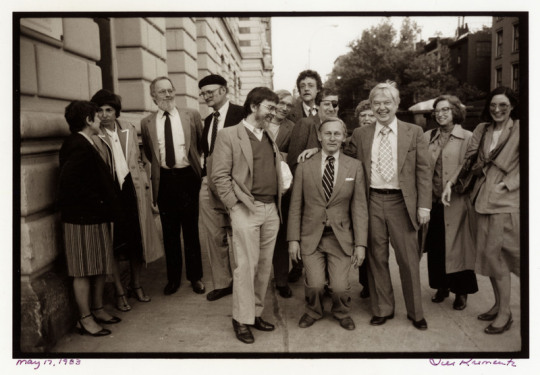
View On WordPress
#Donald Barthelme#John Barth#John Hawkes#Kurt Vonnegut#Postmodenism#Postmodernist Dinner#Robert Coover#Stanley Elkin#Thomas Pynchon#William Gaddis#William Gass
6 notes
·
View notes
Text
"... I hope you’ll remember that there’s always another way of seeing things: that’s the beginning of wisdom."
— John Barth
25 notes
·
View notes
Quote
The Genie declared that in his time and place there were scientists of the passions who maintained that language itself, on the one hand, originated in “infantile pregenital erotic exuberance, polymorphously perverse,” and that conscious attention, on the other, was a “libidinal hypercathexis” — by which magic phrases they seemed to mean that writing and reading, or telling and listening, were literally ways of making love.
John Barth, Chimera
49 notes
·
View notes
Text
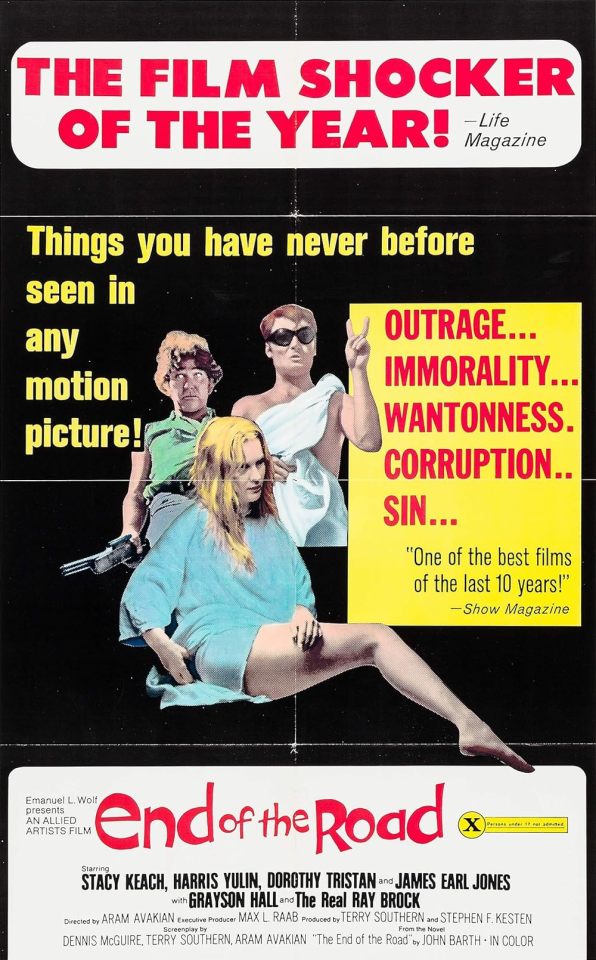
End of the Road
#End of the Road#hippies#abortion#insane asylum#stacy keach#james earl jones#m. emmet walsh#john barth#boy scouts#x rated
7 notes
·
View notes
Text
He had to learn, in John Barth’s line, that the key to the treasure is the treasure—that to be free is not to get what you want... but to begin to know what you want and to feel strong enough to go after it... For a moment, to say yes is to say everything. - Mystery Train: Images of America in Rock ‘n’ Roll Music
by Greil Marcus
3 notes
·
View notes
Text

from a window :: Mikhail Iossel
* * * *
“So, I begin each day with a gesture of cynicism, and close it with a gesture of faith; or, if you prefer, begin it by reminding myself that, for me at least, goals and objectives are without value, and close it by demonstrating that the fact is irrelevant. A gesture of temporality, a gesture of eternity. It is in the tension between these two gestures that I have lived my adult life.”
― John Barth, The Floating Opera
13 notes
·
View notes
Text
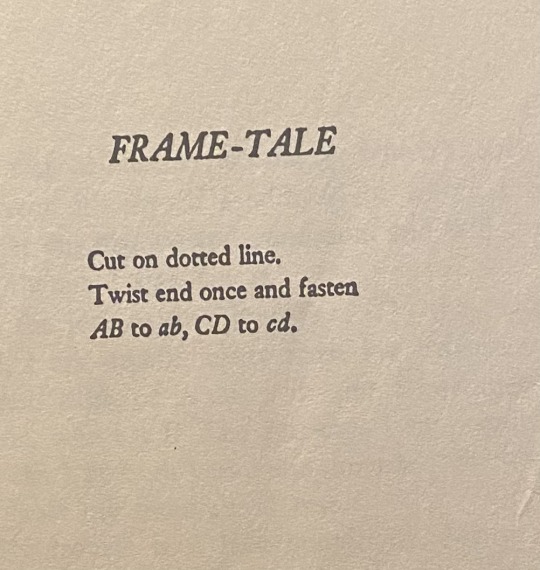


John Barth, Frame-Tale (when cut and assembled forms a kind of mobius strip)
32 notes
·
View notes
Text
Listed: R.E. Seraphin

Whether kicking out raucous, throaty garage jams with Impediments a decade ago, or exploring power-poppier terrain with Talkies and more recently under his own initials, Ray Seraphin tells his stories in the radiance just above the fuzz. Sung low and hoarse, his lyrics blink in and out of reality, propelled by the instruments’ lively buzz and echo. Ruptured by an explosive guitar lead here or punctuated by a tidy, melodic bass riff there, this music doesn’t sit still. It’s familiar but captivating, a potent rock and roll fusion of lo-fi attitude and sweeping hit-record moves. Alex Johnson called his latest release, Fool’s Mate, “dynamic and buoyant… a bright, powerful album with lurid desperation creeping in from the edges.”
Here are 10 of Seraphin’s formative records, books, and movies:
Outrageous Cherry — Out There in the Dark
youtube
When I was 17, my bandmate’s partner loaned this CD to me and I held onto it for a number of years before she was able to pry it back. I loved the pairing of Matthew Smith’s arch wordplay and Larry Ray’s mercurial guitar work. They are one of the classic vocalist-guitarist duos to me — up there with Bowie-Ronson, Ferry-Manzanera, Rollins-Ginn. All of their albums are great. Not to sound trite but they really should be better known!
Ralph Bakshi — Wizards
youtube
When I was fired from my first job at Arinell’s Pizza, the manager gave me a 1/2 pint of Ancient Age, a CD copy of Butthole Surfers’ Independent Worm Saloon, and a VHS copy of Wizards as my severance package. He proceeded to drink the whiskey with me (at 9am) but, mercifully, stopped short of insisting we watch Wizards together. The film is lifted into classic status by Bakshi’s signature crude and wild animation style despite a fairly ho-hum future-fantasy plot. Still visually arresting.
John Barth — The End of the Road
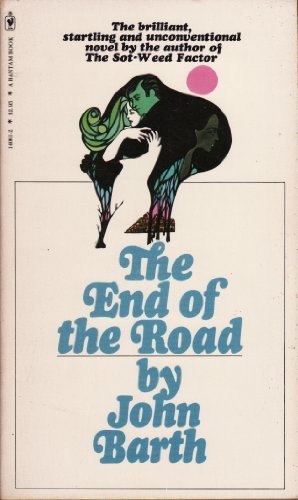
I was an English literature major in college and, because I fancied myself a Serious Person, I read a lot of books I didn’t understand in my extracurricular time. I’ve read a few of John Barth’s more celebrated, metaphysical works but this early, "realistic" story is the one that stuck with me. There’s a bleakness and ugliness to the book that feels really transgressive — albeit not in an edgy, cornball way. Plus, as someone who probably suffers from some form of executive dysfunction, I somewhat relate to the protagonist Jake’s crisis of self.
The Real Kids — Outta Place
youtube
Over the years, my music has largely been referred to as power pop. I chafe against the term a little bit but can't say I’m entirely allergic to it. The Real Kids likely represent my first real interest in the genre. Their self-titled album is their best, most complete work; however, I more frequently listen to their New Rose-era.
Flamin’ Groovies — “Whiskey Woman”
youtube
Growing up, the Flamin’ Groovies were the consummate rock group. They represented band-ness to me in a way few others did. In my mind, it’s The Replacements, NRBQ, The Faces, maybe Cheap Trick, and the Flamin’ Groovies. Their early records have this cartoonish, shambolic post-Stones vibe I love — the Roy Loney effect. That said, I was drawn to this somewhat atypical ballad sung by their guitarist, Cyril Jordan. I think this is the song that made me realize you could end a song with something other than a double chorus.
Tommy James — “Ball and Chain”
youtube
My record collection did and does consist almost entirely of dollar bin records. I bought this record on a whim at a garage sale and became enamored of James’ weird, Christian bubblegum world. The fuzz guitar (maybe played by Tommy himself?) on this song is absolutely psychotic. Big fan.
Kirsty MacColl — “They Don't Know”
youtube
I discovered Stiff Records through a CD box set my mom owned. Initially, I was lured by the rockin’ entries in their catalog: Nick Lowe, Wreckless Eric, Larry Wallis, The Damned, et al. I also adored Rachel Sweet and Kirsty MacColl, though. A perfect song that contains the most affecting use of the word "baby" in the history of pop music.
Thee Headcoatees — Girlsville
youtube
I vaguely remember being stoned at a friend’s house when I was 16 and getting introduced to this Headcoatees album. I nicked a riff for one of my first songs, "Pig Out," which I licensed to a vegan pork rind company 10 years later. To this day, I don’t know what song I ripped off and it may not have even been by Thee Headcoatees. But Thee Headcoatees are cool, so here you go!
Flannery O’Connor — Wise Blood
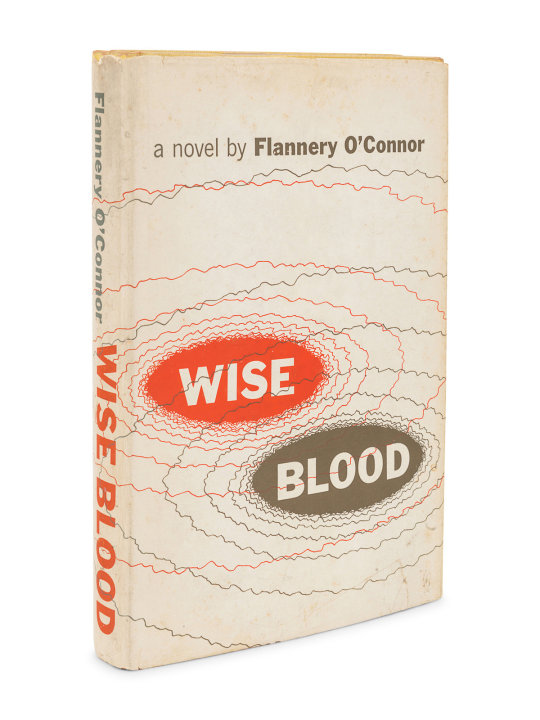
I attribute my interest in American fiction writing to Flannery O’Connor. The atmosphere in her stories is so suffocating and anxiety-inducing — in a good way. I think reading this was the first time I understood the emotional impact great writing can have. I have a slight preference for her short stories now but, keeping in the spirit of this list, Wise Blood was my first, most enduring exposure to her work.
Zero Boys — Vicious Circle
youtube
I grew up in Berkeley, home of the Gilman St. Project, and I think a lot of my peers in high school expected me to be into hardcore. The Zero Boys are probably the one the clicked with me the most. They were melodic and seemed still tethered to rock n’ roll. Could be because they cited The Dictators as an influence. I was wearing a Vicious Circle t-shirt the first time I was dumped but I don't hold that against them.
#dusted magazine#listed#r.e. seraphin#outrageous cherry#ralph bakshi#john barth#the real kids#flamin’ groovies#tommy james#kirsty maccoll#thee headcoatees#flannery o’connor#zero boys
3 notes
·
View notes
Text
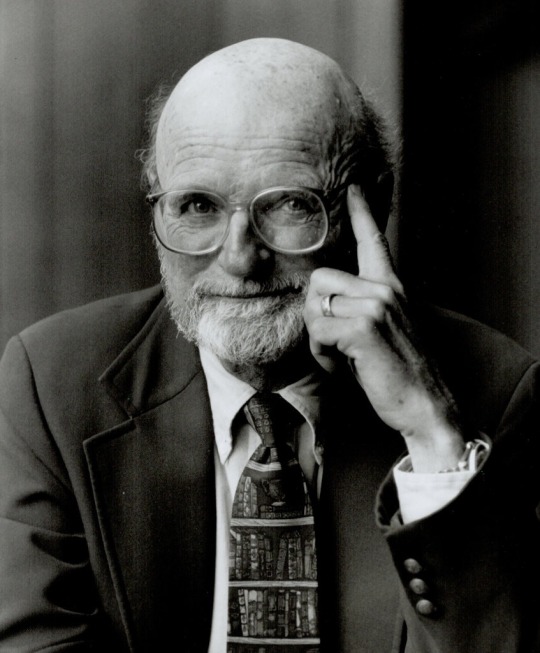
John Barth in 1994. A practitioner and a theoretician of postmodern literature, he was known for “The Sot-Weed Factor,” “Giles Goat-Boy” and other novels / Peter Power/Toronto Star, via Getty Images
2 notes
·
View notes

